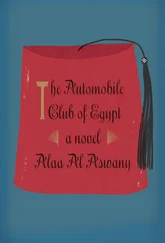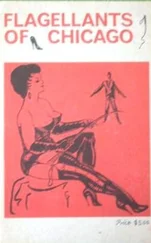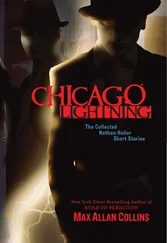When Dr. Ahmad Danana asked for the hand of Miss Marwa Nofal in marriage, he seemed like an excellent prospective bridegroom in all respects. He was pious, as evidenced by the prayer mark on his forehead and the prayer beads in his hand, his constant quoting of the Qur’an and hadith, and his taking pains to perform his prayers at their appointed times no matter what the circumstances. He was ready for marriage: he owned a deluxe two-hundred-square-meter duplex condominium overlooking Faisal Street in the Pyramids area. He had announced that he was ready to pay the requisite dowry and buy the engagement gift selected by the bride (within reason). More important, he was an instructor in the College of Medicine who was studying in America and would get a PhD and come back to Egypt to assume the highest posts. And just as the breeze swayed tree branches, Hagg Nofal (merchant of bathroom fixtures in Ruwai‘i) was swayed by the wish that his son-in-law would one day become a minister or even a prime minister. And why not? Dr. Danana was a prominent member of the Youth Secretariat of the ruling party and had important connections. During his vacation in Cairo he met daily with high-ranking officials of the state. What could detract from him as a bridegroom? His being slightly older? That would be an asset and not a liability. A mature man would pamper Marwa and protect her better than a rash young man who might mistreat her. Hagg Nofal was enthusiastic about accepting Danana’s proposal, although he calculated (in his merchant’s mind) how much the marriage would cost him and came to the conclusion that it would cost him several times what it would cost the bridegroom. But he said to himself that God had given him an immense fortune, so he should spend according to his ability. Besides, no amount of money was too much for his eldest daughter.
As for Marwa herself, she had spent several years after graduating from the English section of business school refusing traditional arranged marriages and making fun of them. She knew she was beautiful and that her beauty was of the kind that aroused men’s lust. Ever since she was a teenager she had almost never met a man who did not lust for her soft jet-black hair cascading down her shoulders, her splendid black eyes, her delicious full lips, and her beautiful build: the ample bosom, the narrow waist, then the wide hips resting on beautiful legs, even her little feet with their symmetrical toes and painted nails, which were more like a well-wrought art masterpiece than living body parts. For years Marwa was immersed in her dreams, seeing herself as her highness the princess waiting for her handsome knight to carry her off on his white steed. She turned down many suitors, notables and rich men, because she didn’t feel truly attracted to any of them. Then suddenly she discovered that she was over twenty-nine and had yet to find her grand amour. She realized that she had to reconsider matters and take a more practical approach. Her mother told her repeatedly that the love that came after marriage was more solid and steeped in respect than those fickle hot feelings that might disappear suddenly or end in disaster.
Then Marwa read stories to the same effect in answers to readers’ problems published in the Friday edition of Al-Ahram in the Letters to the Editor section, and she realized that her mother’s words spoke to facts of life. Thus she had to give up on her dream of a grand love because she came to believe she could not find it in her lifetime. Life in reality was, after all, different from life in the movies. So maybe she should marry like everybody else. In the end she should have a home, a family, and children. Besides, she was not getting any younger: in a few months she’d be thirty. What mattered more than anything else was for her to get married now; love would come later. She felt nothing against Ahmad Danana but also nothing for him. She had neutral feelings toward him, but rationally, she thought that he would not make a bad husband. If only she could forget his crude features, the wrinkles on his brow, his kinky hair, and his protuberant potbelly, despite the vest that he always wore to appear more slender. If only she were able to dismiss those negatives, she would be able, somehow, to live a love story with him. Was he not kind and gentle with her? Did a single special occasion pass without his giving her a precious gift? Did he not take her to the most expensive restaurants in Cairo? Did he not spend money on her as if there were no tomorrow, so much so that she worried about those exorbitant bills that he gladly paid? How could she forget that wonderful night when they had that two-hour candlelit dinner, with violins playing, on board that giant ship Atlas as it made its way up and down the Nile, and how that felt like a beautiful dream? He loved her and spoiled her and was doing his utmost to make her happy. What more could she want? True, sometimes she had bouts of dejection that made her want to shun him, but that was rare. Her mother convinced her that that was the result of an evil eye and convinced her to read the Qur’an a lot, especially at night.
The engagement day passed as well as could be expected. The Grand Sheikh of al-Azhar personally performed the wedding ceremony at the mosque of Sayyidna Hussein (may God be pleased with him). The wedding party was held at the Meridian Hotel and cost Hagg Nofal a quarter of a million Egyptian pounds. Singing sensations Ihab Tawfiq and Hisham Abbas, and Dina, the famous dancer, performed at the fantastic celebration, which was attended, as the newspaper accounts put it, “by an assemblage of society stars and state officials.” There were serious religious objections to the presence of an almost naked dancer at a wedding in a family known for its profound religiosity, but Hagg Nofal confronted the objections with a few decisive words. “Marwa is my eldest daughter and my first joy. A wedding without a dancer would be flavorless and God Almighty knows true intentions and He is forgiving and merciful.”
Hagg Nofal had insisted on the dancer Dina (notorious for her revealing outfits and lewdly suggestive moves), then he encouraged her with clapping and loud exclamations while she danced, and had a smiling, whispering conversation with her at the end of the wedding — a conversation that went on so long that his wife, Hagga Insaf, appeared visibly agitated. All of that brought back secretly told stories about Hagg Nofal’s hedonistic lifestyle and his pursuit of dancers as a youth before his repentance and going back to the straight and narrow.
At Hagg Nofal’s expense the newlyweds went to Turkey on their honeymoon, and from there they flew to Chicago, where Danana rented a new big off-campus apartment. Marwa started her new life enthusiastically and sincerely, hoping wholeheartedly to make her husband happy, to organize his life and support him until he made it to the top. But the sunny picture, from early on, had a few dark spots, and now, after a full year of marriage, Marwa was all alone at home, events running in her mind like a movie that she kept playing time after time, blaming herself harshly for missing signs in her husband’s behaviors from the beginning or perhaps noticing but ignoring them to preserve a rosy, unreal outlook. The dreams came crashing down, smashed against the rocks of reality, breaking into smithereens like pieces of glass.
The problems began with the suit incident. Danana had worn a very fancy and handsome white Versace suit for the wedding. Afterward, while organizing her husband’s clothes in the closet, Marwa couldn’t find the suit. She was extremely alarmed and it occurred to her that it had been stolen or lost on the plane. When he returned from school she asked him, but he remained silent, fixing her with a sly and hesitant glance, then said as if in jest, “The suit is American aid.”
Читать дальше
Конец ознакомительного отрывка
Купить книгу












